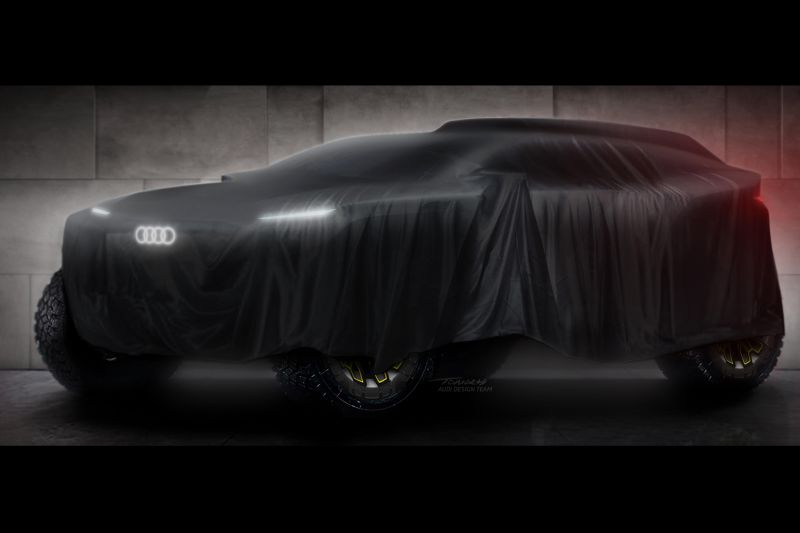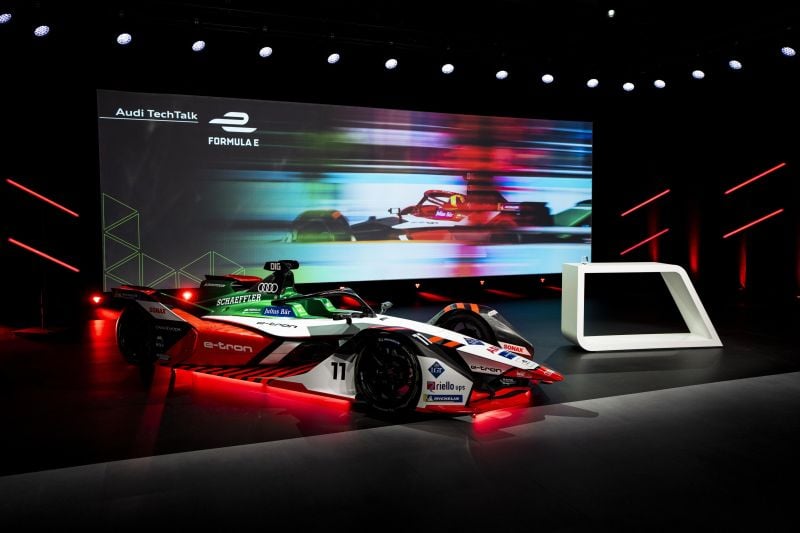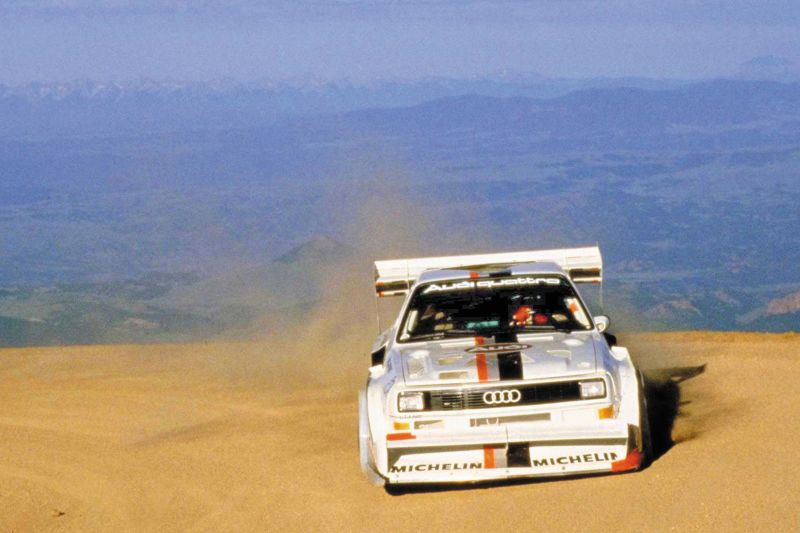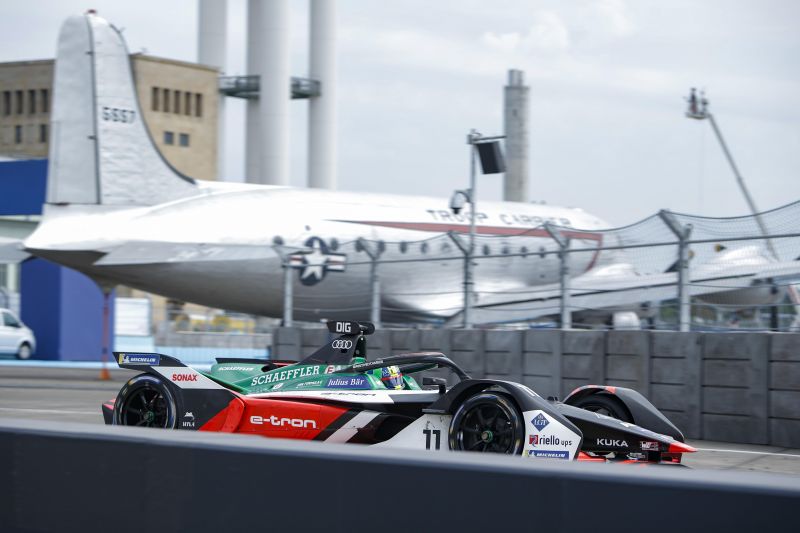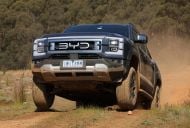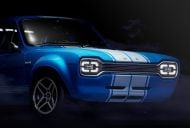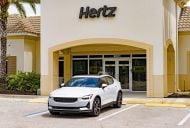Audi made a name for itself in rallying, but it’s dipped its toe into most corners of the motorsports world.
It’s taken on DTM, dominated Le Mans, and tried its hand at Formula E. Now it’s heading to the Dakar Rally, dropping its Formula E program in the process.
The German brand will enter the Dakar Rally in 2022 with an electrified SUV.
That also means next year will be the last year of a factory team in Formula E, though it’ll continue to offer its new-for-2021 powertrain to other customer teams.
Audi hasn’t revealed specifications of its Rally racer, just that it’s an “innovative prototype” that “combines an electric drivetrain with a high-voltage battery and a highly efficient energy converter”.
The energy converter will be one of the company’s turbocharged petrol TFSI engines, which should work as a range extender to top up the battery.
“Today, electromobility at the four rings is no longer a dream of the future, but the present. This is why we are taking the next step in electrified motorsport by facing the most extreme conditions. The many technical freedoms offered by the Dakar Rally provide a perfect test laboratory for us in this respect,” said Markus Duesmann, chairman of the board of management at Audi.
Audi had just developed its first Formula E powertrain entirely in house for use next year in its FE07 race car. Previous Audi entries had used powertrains developed with partner Schaeffler.
Though it’s leaving Formula E, the company has committed to entering the new Le Mans Daytona Hybrid hypercar class of the World Endurance Championship, though it hasn’t said in what year it’ll enter.
Julius Seebach, managing director of Audi Sport, assumes responsibility for the company’s international motorsport activities from today in addition to his existing role, and said the company is “evaluating other possible fields of activity for us in international motorsport”.
“In doing so, we have our customers’ wishes in mind as much as the company’s future strategy, which is clearly focused on electrification and carbon-neutral mobility,” Seebach said.
The last time an Audi rally car went off-road with factory involvement was in 1987, when Walter Röhrl won the Pikes Peak International Hill Climb in a Sport Quattro S1 E2. That came just a year after Audi exited Group B rallying.
Of course, Pikes Peak and Group B are very different to the torture test that is the Dakar.
Audi won’t be the first company to enter an electrified vehicle into the Dakar Rally.
In 2017, Spanish renewable energy Acciona entered its all-electric 100% EcoPowered, the first such vehicle to finish the Dakar Rally.
The Dakar Rally hasn’t ended in Dakar, Senegal since 2007. From 2009 until 2019, the event took place in South America while last year’s event took place in Saudi Arabia.
Audi has had factory involvement in Formula E since 2017, though it first served as a supporting partner for ABT Sportsline from 2014.
The company says the Audi Sport ABT Schaeffler team is the most successful in Formula E history with a total of 43 podium finishes, including 12 victories.
Audi’s withdrawal from Formula E follows its announcement earlier this year it won’t participate in DTM touring car series beyond this year.
While it’s pulling out of these two series, Audi says it remains committed to motorsport. That includes competing with the Audi R8 LMS in major endurance races like the Nürburgring 24 Hours and in international racing series like the Intercontinental GT Challenge.

